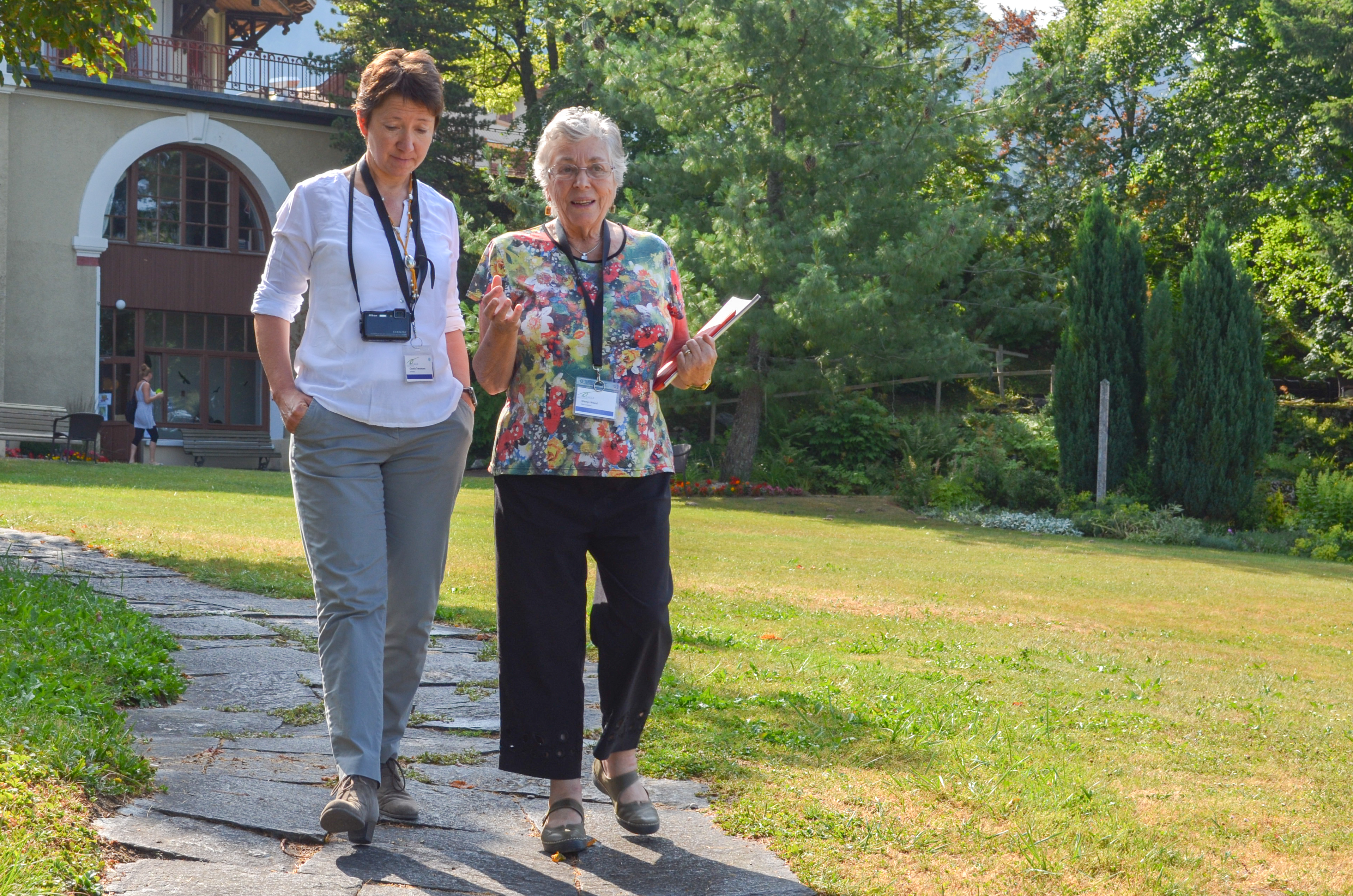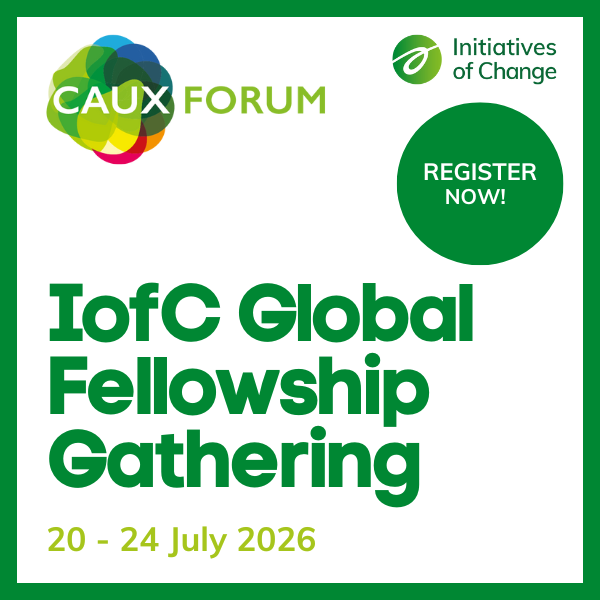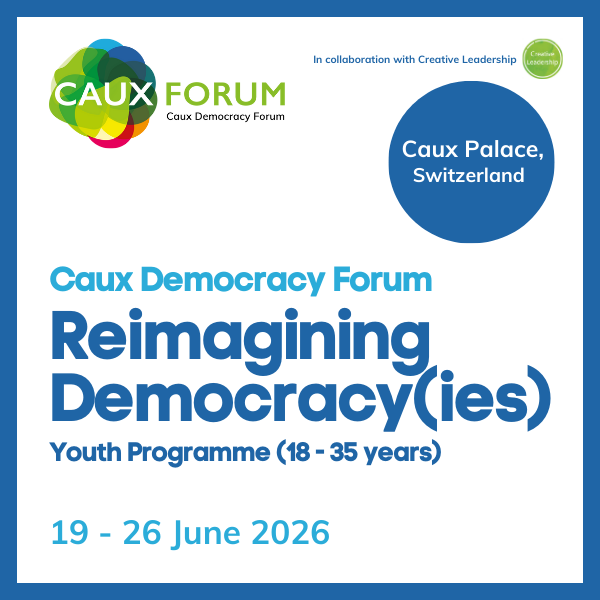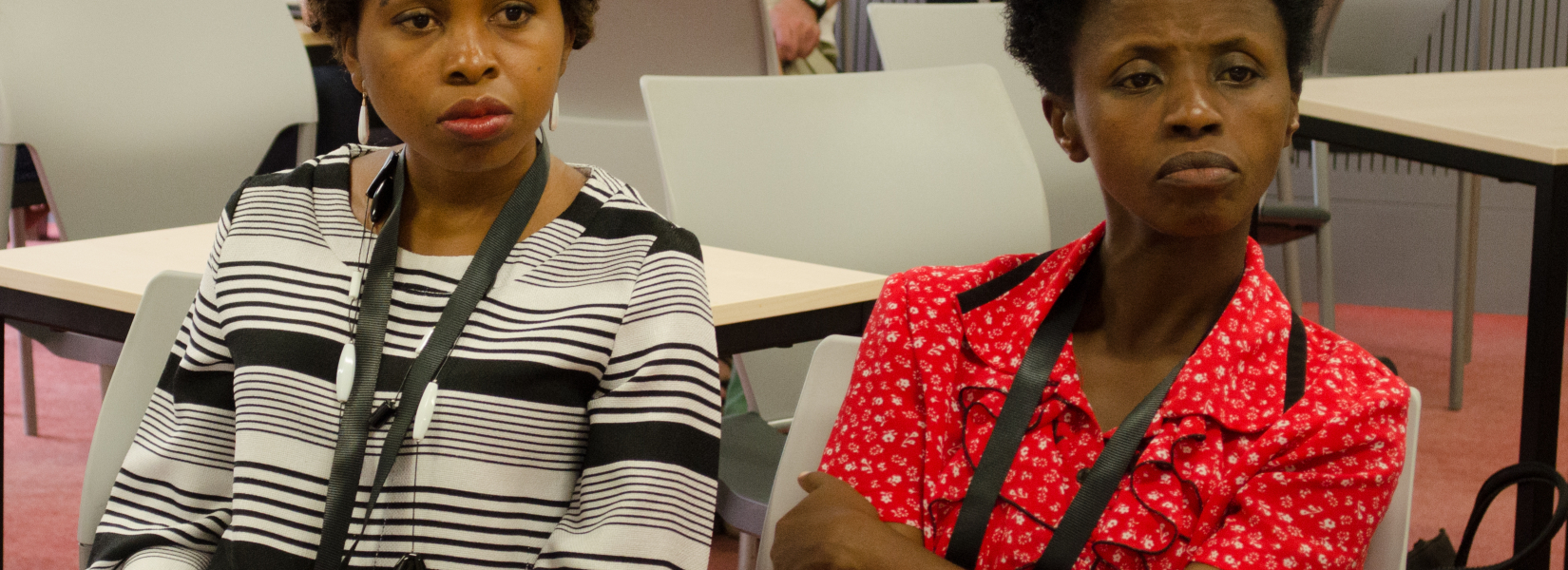
IPF 2015: Implementing dignity, participation, and inclusion
17/07/2015Day 2
The morning’s session featured a panel of peace-builders who discussed their experiences implementing dignity, participation, and inclusion in their work.
Koenraad von Brabant of Interpeace explained that it is important to include all stakeholders of a conflict, not just the government and big corporations. If a population is affected by a conflict, they need to be involved in the peace-building process, even if they come from a remote village.
Ajsa Hadzibegovic from Civic Alliance explained the difficulties of an after-war situation and how they must be careful with the way they package peace-building activities. Because the government has not changed since the war, they cannot undertake peacebuilding activities openly, but need to present them as cultural or educational activities, for example.
Catriona Gourlay of PeaceNexus asked this question: do peace-building organisations respect the values they defend inside the organization? She admitted that it can be very difficult to have an inclusive leadership and explored some of the challenges that she faces in her organisation.
Lastly, Daphrose Ntarataze Barampama, President of Creators of Peace International, explained the values and methods of the peace circles, including the practice of silence and introspection as a first step in creating peaceful environments.
In the afternoon Abbas Aroua, Director of the Cordoba Foundation of Geneva, presented Islam/Arab perspectives on non-violent conflict transformation. He drew on Qruanic verses, Hadith, and Arabic linguistics to highlight the roots of peace (slim), love (rahma), and human dignity (karāma) within the Islamic tradition.
The evening programme gave the opportunity to participants to relax and to bond thanks to ice-breakers that allowed them to be more aware of themselves, mind and body, and of others.
related stories
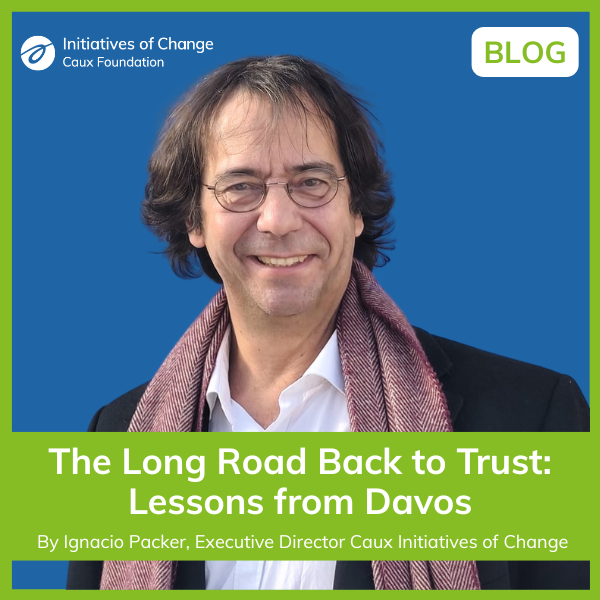
The Long Road Back to Trust: Lessons from Davos
After participating in the World Economic Forum Annual Meeting in Davos on 22 January 2026, Ignacio Packer, Executive Director of the Caux Initiatives of Change Foundation, reflects on the question th...
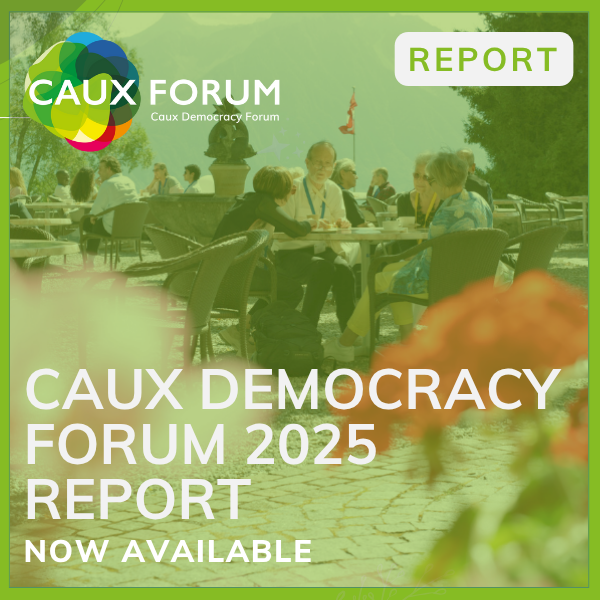
Caux Democracy Forum 2025: The full report is now available
Discover the full report of the Caux Democracy Forum 2025 which brought together more than 350 participants from over 45 countries at the Caux Palace to reflect and act on the theme “Revitalizing Demo...

Caux Inner Development Goals Forum 2025: Call for Workshops
Call for workshops! You would like to give share your inspiration, ideas and skills with other participants at the Caux IDG Forum this summer? We look forward to your application! Applications will be...

Democracy: a matter of choice and voice
"In a democracy, each of us carries the responsibility to engage, listen and to contribute. It is more than a political system. It is about choice and voice. How does this resonate with you?" With the...

Europe: A Mindset of Diversity
Spanish journalist Victoria Martín de la Torre is passionate about Europe, diversity and interfaith relations. Here she reflects on different aspects of Europe, based on her PhD research which led her...

What is the meaning of home?
Amid escalating conflicts worldwide, the arts emerge as a potent force to challenge misconceptions and foster positive perspectives. The pivotal role of artists in creatively raising awareness has nev...

Walking the Talk in Business
On 25 - 28 January, some 60 CEOs and other senior staff came together under Chatham House Rules to share personal experiences on how to balance a sustainable business with integrity and trust. Executi...

Caux Forum 2024: Save the Date!
Save the date for the Caux Forum 2024! This summer Caux Initiatives of Change, in partnership with Initiatives of Change International and supported by other civil society networks, UN agencies, phila...

Filling the gap in global efforts for peace and democracy
The Caux Forum 2023 Opening Ceremony set the tone for the conference with the theme, ‘Strengthening Democracy: The Journey from Trauma to Trust.’. Discover the report and relive the highlights of this...

Finding purpose and harmony through music and the Caux Palace
In a world filled with diverse cultures and languages, the journey of musician Tsvetana Petrushina is an inspiring tale of how she discovered her purpose. Her remarkable story led her to the Caux Pala...

Caux Forum 2023: Save the Date
We are excited to announce the Caux Forum will be back in Caux next summer! Find out more and save the date! ...

Arpan Yagnik: Mountains to climb
Arpan Yagnik, a participant of last year's Creative Leadership conference and team member of the IofC Hub 2021, talks to Mary Lean about creativity, fear and vocation. ...

Young Ambassadors Programme 2021: Learning to listen
When Indonesian law student Agustina Zahrotul Jannah discovered the Young Ambassadors Programme (YAP) on Google she felt both excited and hopeless: excited because she hoped it might give her the skil...

Sofia Syodorenko: A zero waste lifestyle is a mindful lifestyle
How did Sofia Syodorenko become involved in the zero waste movement, and what does it mean to her? Now Chair of Foundations for Freedom, she is also a representative of the Zero Waste Alliance Ukraine...

‘Where Grieving Begins – Building Bridges after the Brighton Bomb’: a live interview with Patrick Magee
The second in Tools for Changemakers’ series of Stories for Changemakers took place on 25 August 2021, with an interview with Patrick Magee, who planted a bomb at the Grand Hotel, Brighton, in 1984, w...
